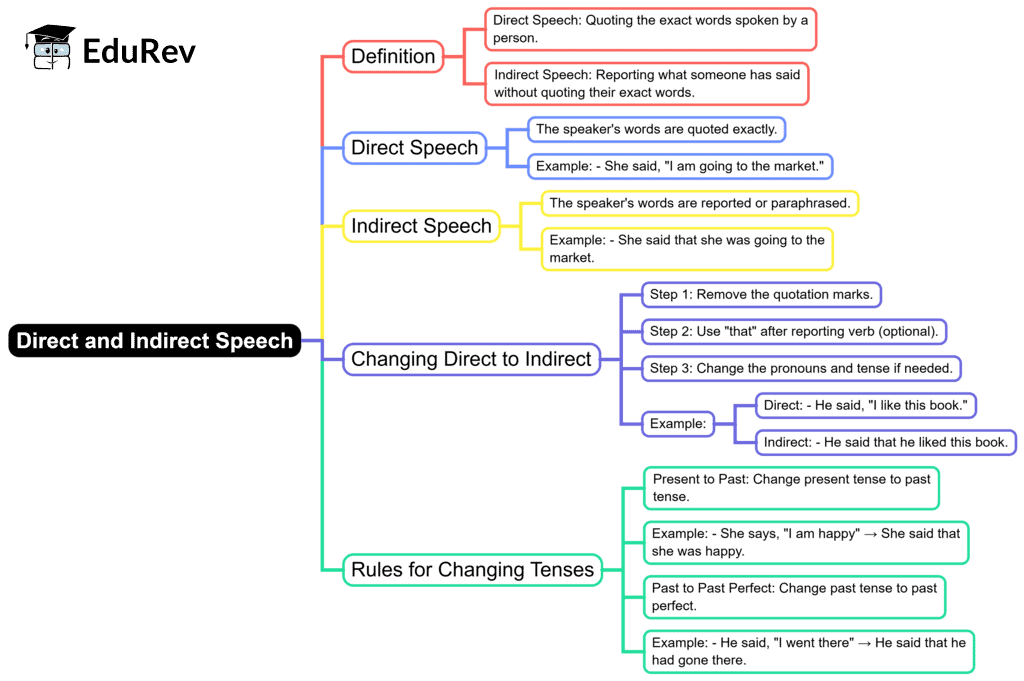Class 6 Exam > Class 6 Notes > English Grammar for Class 6 > Mind Map: Direct and Indirect Speech
Mind Map: Direct and Indirect Speech | English Grammar for Class 6 PDF Download

The document Mind Map: Direct and Indirect Speech | English Grammar for Class 6 is a part of the Class 6 Course English Grammar for Class 6.
All you need of Class 6 at this link: Class 6
|
49 videos|349 docs|46 tests
|
FAQs on Mind Map: Direct and Indirect Speech - English Grammar for Class 6
| 1. What is the difference between direct and indirect speech? |  |
Ans. Direct speech involves quoting the exact words spoken by a person, typically enclosed in quotation marks. For example, He said, "I am going to the store." Indirect speech, on the other hand, paraphrases what someone said without quoting them directly, often changing the verb tense. For example, He said that he was going to the store.
| 2. How do you convert direct speech into indirect speech? |  |
Ans. To convert direct speech into indirect speech, you typically need to change the pronouns and verb tenses appropriately. Start by removing the quotation marks and using a reporting verb like "said" or "told." For example, "She said, 'I love pizza'" becomes "She said that she loved pizza."
| 3. Are there any changes in punctuation when converting from direct to indirect speech? |  |
Ans. Yes, there are changes in punctuation when converting from direct to indirect speech. In direct speech, the spoken words are enclosed in quotation marks. In indirect speech, the quotation marks are removed, and the sentence structure changes, often requiring the use of conjunctions like "that."
| 4. Can you provide examples of changing tenses in direct and indirect speech? |  |
Ans. Certainly! When changing tenses from direct to indirect speech, the present tense often shifts to the past tense. For instance, "I am happy" in direct speech changes to "He said he was happy" in indirect speech. Similarly, "I will go" changes to "He said he would go."
| 5. What are some common reporting verbs used in indirect speech? |  |
Ans. Some common reporting verbs used in indirect speech include "said," "told," "asked," "explained," and "claimed." Each of these verbs can change the structure of the sentence slightly. For example, "He told me, 'I am busy'" becomes "He told me that he was busy."
Related Searches
















